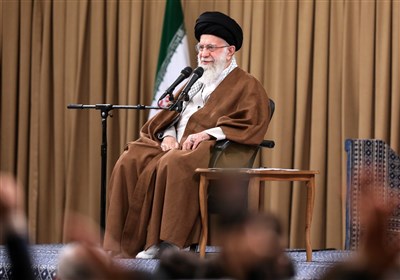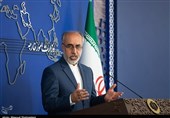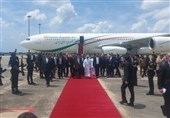Anti-Iran Sanctions to Further Isolate US: American Prof.
TEHRAN (Tasnim) – An American political analyst based in California highlighted the Donald Trump administration’s wrong policy towards Iran and said the unilateral embargoes against the Islamic Republic “will only lead to the further isolation of the US”.
“Already, China and Russia have expressed their intention to deal directly with Iran in order to circumvent any US oil embargo,” Dennis Etler, a professor of Anthropology at Cabrillo College in Aptos, California, said in an interview with Tasnim.
“The EU is also trying to develop the means to avoid secondary US sanctions,” the analyst said, adding, “Trump’s unilateralism will only lead to the further isolation of the US and the emergence of a bloc of sovereign nations that will no longer be held hostage to the threat of US economic warfare.”
Following is the full text of the interview:
Tasnim: As you know, the US government’s hostility toward Iran has recently entered a new stage. Secretary of State Mike Pompeo has formed a dedicated group to coordinate and run the country's policy towards Iran following President Donald Trump's unilateral withdrawal from the 2015 nuclear deal with Tehran. Pompeo announced the creation of an Iran Action Group (IAG) at a news conference, naming Brian Hook, the Department of State's director of policy planning, as its head. What do you think about the group and its objectives and do you think that it would be able to reach its goals?
Etler: The Trump foreign policy is a retreat from the neo-liberalism of the Obama administration which sought to enmesh Iran in a series of commitments meant to limit its sovereignty and further US objectives in the Middle East. In exchange for a number of concessions codified in the Joint Comprehensive Plan of Action, the US and other signatories agreed to lift sanctions and re-integrate Iran into the global economy. The Trump White House is dominated by right-wing Zionists and Christian Evangelicals whose ambition has been to scuttle the JCPOA. Rather than try to co-opt Iran, they are committed to coerce it into abandoning its freedom of action as a sovereign state and become a willing vassal of the US. If that doesn’t succeed, Washington plans to turn the screws until the conditions are laid for an attempt at internal subversion and regime change, leading to the installing of a US friendly government.
The Iranian people have stood firm for 40 years against the machinations of US Imperialism. It is inconceivable that they will abandon their freedom and independence in the face of renewed US pressure and sanctions.
Tasnim: The Trump administration recently threatened to cut Iranian oil exports to zero, saying that other countries must stop buying its oil from Nov. 4 or face financial consequences. Washington later softened its threat, saying that it would allow reduced oil flows of Iranian oil, in certain cases. Since oil is a strategic product and countries around the world always demand it, do you think that the US is able to carry out this threat at all?
Etler: The US use of secondary sanctions is based on the primacy of the petro-dollar in international exchange and the role that US financial institutions play in the global economy. The more attempts made by the US to bully and threaten countries to do its bidding, the more resistance it will meet. Already, China and Russia have expressed their intention to deal directly with Iran in order to circumvent any US oil embargo. The EU is also trying to develop the means to avoid secondary US sanctions. Trump’s unilateralism will only lead to the further isolation of the US and the emergence of a bloc of sovereign nations that will no longer be held hostage to the threat of US economic warfare.
Tasnim: Trump's threat is part of his walking away from the Iran nuclear deal. He also plans to fully reinstate anti-Tehran sanctions from November 4. In the meantime, the EU has vowed to counter Trump’s renewed sanctions on Iran, including by means of a new law to shield European companies from punitive measures. German Foreign Minister Heiko Maas recently said Europe should set up payment systems independent of the US if it wants to save the JCPOA. What do you think about the EU’s role in reducing Washington’s pressures against Tehran and saving the deal?
Etler: Trump’s hubris and unilateralism has alienated nearly everyone towards the US, friend and foe alike. The liability of relying on the US financial system has become crystal clear. Hence, Trump’s withdrawal from the JCPOA has catalyzed a reaction against US global economic hegemony. It is in the interests of all sovereign states who value their freedom and independence to develop a new payment system that circumvents the US.






